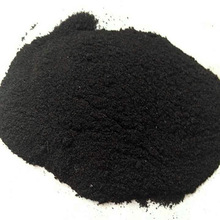Trump’s takeover of the courts is complete with latest VRA and vaccine rulings.
Over the last few years, the lower federal courts have rendered increasingly extreme decisions under the influence of Donald Trump’s 234 judges. Thursday brought one of the most dramatic examples of this trend so far: Two federal courts issued radical decisions blowing up decades of precedent to reach results that are not just conservative but dangerous and absurd. First, the 5thU.S. Circuit Court of Appeals held that judges can block a private company’s vaccine mandate on the grounds of religious discrimination—a decision that even one hard-right judge condemned as an “orgy of jurisprudential violence.” A few hours later, U.S. District Judge Lee Rudofsky issued a stunning decision barring anyone but the U.S. attorney general from suing under the Voting Rights Act, jeopardizing voters’ ability to protect their own rights and undoing decades of precedent. Taken together, these decisions illustrate both the radicalism of Donald Trump’s nominees as well as a stark generational divide over the pace and propriety of overtly results-oriented judging.
Start, as usual, with the 5thCircuit. The Trumpiest appeals court in the country, the 5thCircuit regularly shreds all the rules to pursue an ideological agenda. It is stacked with so many Trump judges and Federalist Society myrmidons that its key dividing line shouldn’t be viewed as conservatives vs. liberals but conservatives vs. far-right nihilists.
Thursday’s decision in Sambrano v. United Airlinesillustrates this distinction. The case involves several employees of United Airlines, including a pilot and flight attendant, who challenged the company’s COVID-19 vaccine mandate. These plaintiffs allege that the mandate illegally discriminates against their religious beliefs under Title VII of the Civil Rights Act. They requested a preliminary injunction to block the policy while they pursue their claims.
AdvertisementIt is clear that these plaintiffs will lose on the merits, because United already gave them a reasonable accommodation (unpaid leave) and demonstrated that suspending the mandate would impose an undue hardship (by facilitating the spread of COVID). But that’s not the biggest flaw in this suit. The main problem is that, as a rule, Title VII does not authorize courts to issue preliminary injunctions. Instead, plaintiffs receive relief afterthey’ve prevailed, typically in the form of damages (like back pay) and reinstatement.
Advertisement Advertisement AdvertisementAnd yet, in Sambrano, the 5thCircuit reached the opposite conclusion: In a “narrow” set of cases, it declared in a 2–1 decision, courts can grant preliminary injunctions to block an allegedly discriminatory workplace policy. Which cases? Those involving vaccine mandates. The majority—Judges Jennifer Walker Elrod and Andy Oldham—created, out of whole cloth, a new category of discrimination: “ongoing coercion.” These plaintiffs are “forced to choose either to contravene their religious convictions or to lose pay indefinitely,” they wrote. The “unique” harm of vaccine mandates therefore justifies preliminary injunctions to protect religious employees from a “crisis of conscience.” Elrod and Oldham returned the case to the district court with the strong suggestion that it should issue an injunction immediately.
AdvertisementAll this was too much for Judge Jerry Smith, a very conservative Ronald Reagan nominee, who responded with one of the angriest dissents of his career. In a 60-page burst of fury, Smith wrote that “nothing, especially not the law, will thwart this majority’s plans.” While flouting “blackletter law, the record, and even the Supreme Court,” Elrod and Oldham’s “orgy of jurisprudential violence … junks facts, text, history, and precedent, resulting in a one-off change in the law that alters the result for these parties.” Smith even suggested that these judges lied, “inventing and distorting facts” to suit their “incoherent reasoning” while ignoring facts that “would get in the way of a good story.”
Advertisement“If I ever wrote an opinion” so egregious, Smith wrote, “I would hide my head in a bag.”
AdvertisementWorse, the majority chose to “shrink behind an unsigned and unpublished opinion,” which Smith decried as a “clever way of avoiding, or at least trying to avoid, en banc review.” Nonetheless, Smith urged the rest of his colleagues to vacate Elrod and Oldham’s decision. “By today’s ruling, the Good Ship Fifth Circuit is afire,” he announced. “We need all hands on deck.”
AdvertisementThe most revealing line in Smith’s dissent provides a peek into the influence that clerks have over their judges. Bemoaning the many ways that Sambranocould be exploited, he wrote: “It’s difficult to imagine what creative lawyers—not to mention federal judges spurred on by zealous law clerks—will do with these new tools.”
AdvertisementZealous law clerks?With this aside, Smith may be warning us about the impact of today’s conservative clerks on the law. Federalist Society judges tend to hire Federalist Society clerks, and the conservative legal movement’s radicalization machine produces an endless line of young lawyers even more extreme than their predecessors. Over the past half-century, each generation of conservative attorneys, particularly those with judicial ambition, has been more radical than the last. The latest batch of Federalist Society law school graduates has already flooded the 5thCircuit’s clerkships. Smith appears to be unnerved at the fanaticism of these clerks and their impact on their bosses’ work. (Sambrano may be Exhibit A.) When he, of all people, is ringing the alarm, we should all share his distress.
Advertisement Advertisement AdvertisementTurn next to Arkansas State Conference NAACP v. Arkansas Board of Apportionment, handed down by Rudofsky, a Trump judge in Arkansas, shortly after Sambrano. The plaintiffs in this case, both civil rights groups, filed a lawsuit alleging that Arkansas has diluted Black residents’ votes through a racial gerrymander. This tactic violates Section 2 of the Voting Rights Act, and Rudofsky agreed that Arkansas’ map is probably illegal. But he refused to strike it down because, he asserted, only the U.S. attorney general may file VRA claims, and he did not join this case.
If Rudofsky were correct, the VRA would be largely unenforceable: The attorney general brings few claims, instead relying on private plaintiffs to vindicate their own rights under the law. Trump’s Justice Department filed zero VRA claims, yet myriad citizens filled the void with lawsuits of their own. Rudofsky would have thrown out every single one of these suits. His theory is a recipe for gutting what remains of the VRA.
Advertisement AdvertisementWhat’s most bizarre about Rudofsky’s argument is that both the Supreme Court and the 8thU.S. Circuit Court of Appeals have already rejected it. A majority of the Supreme Court has held that private plaintiffs, not just the attorney general, may sue under the VRA’s Section 2. So has the 8thCircuit. Those rulings, among others, have led hundreds of other courts to hear VRA cases brought by individuals, not the attorney general. And both rulings are binding on Rudofsky. Yet he claimed that they have been undermined by more recent decisions, freeing him from the obligation to follow them.
Popular in News & Politics
- America Needs to Grow Up
- The Horrible Truth About Shaken Baby Syndrome Cases
- The Degradation of Donald Trump Attorney Todd Blanche Is Already Complete
- The Trump Defense Made Hope Hicks Cry. The Prosecution Got What It Wanted.
The Supreme Court has expressly forbidden this kind of overruling from below, reminding judges: “It is this Court’s prerogative alone to overrule one of its precedents.” Rudofsky didn’t care. Instead, he latched on to a concurrence from Justices Neil Gorsuch and Clarence Thomas suggesting that citizens can’t bring VRA suits. It is as if, recognizing the Arkansas plaintiffs would win on the merits, Rudofsky constructed a new barricade just to keep them from crossing the finish line. In the process, he teed up a vehicle for the Supreme Court’s ultraconservatives to formally overturn the precedent he despises and lop off all vestiges of federal voting rights.
AdvertisementLook at Sambrano and Arkansas Board of Apportionment together and you see an emerging trend: Lower-court judges are empowered by the Supreme Court’s reckless assault on progressive precedent. Taking a page from SCOTUS’s book, these judges are rashly overthrowing decades of case law in pursuit of maximally reactionary and partisan outcomes. Old-guard judges like Smith recognize the perils of this approach, the unintended consequences that may flow from motivated reasoning. But the new guard is confident it can simply change the law if its sloppy decisions lead to conservative-favored outcomes. That’s what the Supreme Court keeps doing, after all, and Democrats have largely abandoned the possibility of expanding either SCOTUS or the lower courts. If the justices don’t face any consequences for going rogue, emboldened judges on the lower courts have good reason to doubt that they will, either.
Tweet Share Share Comment(责任编辑:关于我们)
 I used the Pixel 9 Pro XL in the shower — does the screen work when wet as claimed?
I used the Pixel 9 Pro XL in the shower — does the screen work when wet as claimed? Benzema expected to win Ballon d'Or
Benzema expected to win Ballon d'Or Satellite image suggests massive military parade in North Korea imminent
Satellite image suggests massive military parade in North Korea imminent PSG not disrupted by Mbappe reports, says Galtier
PSG not disrupted by Mbappe reports, says GaltierUpdate your BIOS: Utilities from Top Motherboard Makers
- 2016's $400 GPU vs. 2019's $400 GPUs
- South Korea remains open to another summit with North Korea: minister nominee
- Very tired bear holds up bathroom line by napping on the sinks
- Nation's largest network is down and everyone's making a Trump joke
- Naver, Kakao strive to combat deepfake porn spreading online
- Kante to miss France's World Cup defence
- Google just added a feature we always wanted for Chrome on iPhone
- FIFA to help Qatar migrant workers
-
 This photo, carried on Wednesday, shows the North test-firing a 240mm multiple rocket launcher with
...[详细]
This photo, carried on Wednesday, shows the North test-firing a 240mm multiple rocket launcher with
...[详细]
-
Very tired bear holds up bathroom line by napping on the sinks
 Bear with him, he's had a long day and just wants to nap. A young black bear climbed through the bat
...[详细]
Bear with him, he's had a long day and just wants to nap. A young black bear climbed through the bat
...[详细]
-
Tensions mount as record numbers crowd French migrant camp
 CALAIS, France (AP) -- Tempers are rising among migrants squeezed in record numbers into a shrinking
...[详细]
CALAIS, France (AP) -- Tempers are rising among migrants squeezed in record numbers into a shrinking
...[详细]
-
Nation's largest network is down and everyone's making a Trump joke
 Telstra probably hoped the hashtag #TelstraOutage would be left behind in 2016. Sorry honey, no such
...[详细]
Telstra probably hoped the hashtag #TelstraOutage would be left behind in 2016. Sorry honey, no such
...[详细]
-
Upgrade Your Monitor, Not Your GPU
Stop! If you're thinking of upgrading your gaming PC setup, don't buy that overpriced graphics card ...[详细]
-
Shawn Mendes and Camila Cabello join the summer of sloppy kisses
 The season of summer lovin' is coming to an end, so it's time to get sloppy.In a video shared to Ins
...[详细]
The season of summer lovin' is coming to an end, so it's time to get sloppy.In a video shared to Ins
...[详细]
-
PSG not disrupted by Mbappe reports, says Galtier
 PARIS:Paris Saint-Germain coach Christophe Galtier said rumours about Kylian Mbappe's future did
...[详细]
PARIS:Paris Saint-Germain coach Christophe Galtier said rumours about Kylian Mbappe's future did
...[详细]
-
Inoue to fight Butler for undisputed bantamweight crown
 YOKOHAMA:Japan's Naoya Inoue announced Thursday that he will fight Britain's Paul Butler in
...[详细]
YOKOHAMA:Japan's Naoya Inoue announced Thursday that he will fight Britain's Paul Butler in
...[详细]
-
Tesla issues recall for 9,100 Model X cars
 Tesla issuing a recall for just over 9,000 cars is hardly a surprise these days, given that the comp
...[详细]
Tesla issuing a recall for just over 9,000 cars is hardly a surprise these days, given that the comp
...[详细]
-
 雅安日报讯 “一只鹅每天喂3两饲草,可节约成本3元,按年出栏6000只计算,节约成本18000元,除去土地租金、草种、化肥等费用,可实现增收14000元;如果饲草比例增加一倍,养鹅利润更可观。”日前,
...[详细]
雅安日报讯 “一只鹅每天喂3两饲草,可节约成本3元,按年出栏6000只计算,节约成本18000元,除去土地租金、草种、化肥等费用,可实现增收14000元;如果饲草比例增加一倍,养鹅利润更可观。”日前,
...[详细]
Washington Mystics vs. Chicago Sky 2024 livestream: Watch live WNBA

S. Korean, U.S. nuke envoys agree on close consultations over N.K. aid issue

- NASA's new plan keeps Starliner astronauts in space until 2025
- Hands on with the Amazon Kindle Paperwhite
- Anyone can take a ride in these self
- South Korea remains open to another summit with North Korea: minister nominee
- Number Representations in Computer Hardware
- North Korean state media airs footage of military parade
- French police accused of criminal assault at UCL final

